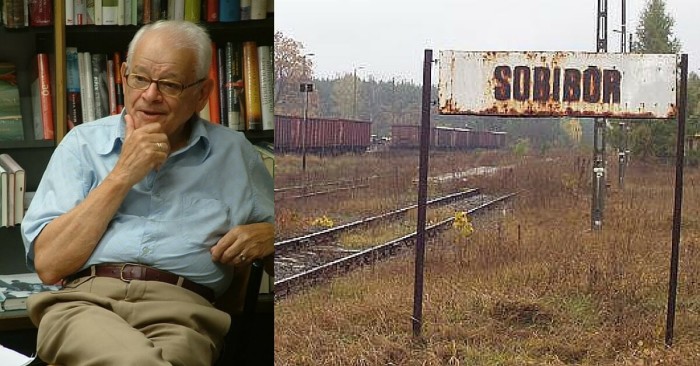After World War II ended, Schelvis documented what had occurred at Sobibor.
Approximately a quarter million people, most of them Jews, were killed at Sobibor between 1942 and 1943. Over 34,000 of the victims were from the Netherlands. The victims were mostly killed in gas chambers. However, many more were killed by the guards, deliberate starvation, disease, and overwork.
Many local Jews were killed at Sobibor. Foreign Jews from all over Europe were brought to the camp. The Nazis often told them they were being resettled and they initially treated them well, only for them to be delivered to the gas chambers in Sobibor.
Schelvis lost most of his family in the war. He survived six concentration camps after Sobibor before finally being freed in 1945. After the war, he returned to the Netherlands.
He served as a co-plaintiff in the trial of John Demjanjuk, a former guard at Sobibor. In 2011, Demjanjuk was found guilty of accessory to the murder of 28,000 Jews.
Because so few people survived Sobibor and because the Nazis tried hard to cover it up, little was known about the camp. Only 18 Dutch people survived.
In the 1980s, after Schelvis retired, he set up the Sobibor Foundation and began writing about the camp.
When he was 22, he was sent to Sobibor from Westerbork in June of 1943 with his wife and in-laws, who were murdered within hours of arrival.
Schelvis was sent on to a labor camp after speaking to a guard in German. This chance encounter saved his life. He suffered incredibly during his time at Sobibor and the other concentration camps.
At first, he believed he was the only Dutch survivor. Eventually, he found 17 others.
He was asked why he devoted years of his life to documenting Sobibor. He said, “I did it for everyone who was murdered there. First of all for my wife and the family and everyone else.”
After the war, he wrote several works on his experiences. In particular, he wrote a respected history of the Sobibor concentration camp. He dedicated his life to ensuring that people did not forget the horrors of the Holocaust. He was also a Nazi hunter and investigated the location of those who had murdered people during the Holocaust.
He died at his home in Amstelveen, near Amsterdam.


Δεν υπάρχουν σχόλια:
Δημοσίευση σχολίου